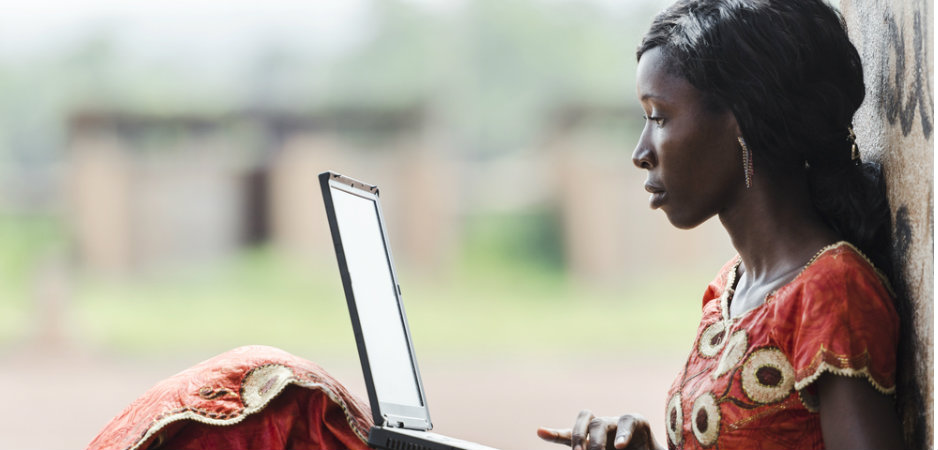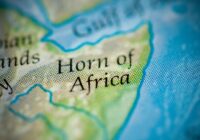The lack of technology policy and its poor implementation can lead to economic and political instability, and the effects of this are magnified in African countries with weak rule of law.
One of the poorest countries in Africa is getting serious about going digital. In October, the Malawian government announced it would require businesses to offer options for digital payments in an effort to expand the digital economy and tax base. Like Malawi, many African countries now find themselves at the forefront of global conversations around how to compete in an increasingly digital economy and govern online spaces, but few are rising to the challenge of safeguarding digital rights in the process.
Rapid population growth across the continent and the anticipation of millions of new technology users in the next five years places additional pressure on African governments to make pivotal policy decisions around cybersecurity, surveillance, internet access, digital rights and data governance. Domestic economic and political pressures, an evolving global order and a pattern of knee-jerk responses by African governments to the challenges of new technologies make the results of these policies even more critical for the African continent.
The lack of technology policy and its poor implementation can lead to economic and political instability, and the effects of this are magnified in African countries with weak rule of law or high debt burdens. Currently, only 14 of Africa’s 54 countries have data protection and privacy laws, and only nine of these are well enforced. In Kenya, a lack of adequate voter data protections contributed to the confusion and upheaval around the 2017 presidential elections. This captured global attention when news broke of Cambridge Analytica’s — the data-mining company behind the Facebook privacy breech in connection to the 2016 US presidential election — involvement in the election.
The questions around the exploitation of Kenyan voter data for political advantage further called into question the legitimacy of an already disputed election that ultimately divided Kenya for months. In neighboring Uganda, the implementation of a poorly understood social media tax and new duties on mobile money transactions is placing additional strain on the economy. While intended to raise revenue, the duties instead led to a decline in mobile money transactions and a 20% drop in data usage among mobile subscribers. This drop is set to cost the country approximately $750 million this year alone and has already begun hindering entrepreneurship and limiting the financial and digital participation by Uganda’s poorest.
Technology governance and policy is also influencing how African nations navigate an increasingly uncertain global order. A recent report by Freedom House alleged that China is sharing its methods for surveillance and control over digital platforms with African countries. One example of this was in April, the government of Zimbabwe signed a strategic partnership with Chinese startup CloudWalk Technology to establish and implement a national facial recognition program. As part of the deal, Zimbabwe will gain access to cutting edge technology that could enhance their security systems, and in return China will gain access to data on Zimbabwean citizens. Agreements between China and African countries have become rather common through the Chinese government’s Belt and Road Initiative. However, this is the initiative’s first artificial intelligence (AI) program.
In a growing contest for technological dominance, this agreement could have potentially global ramifications and give China an advantage against the United States and other competitors in the race for AI supremacy. Currently, one of the biggest flaws in AI-fueled facial recognition software is that these technologies are less accurate when it comes to identifying the faces of women and people of color. The Chinese technology industry, which often acts as a supplier to the government, therefore stands to substantially benefit from this deal, as CloudWalk will be able to train algorithms using the data of Zimbabwean citizens. Such deals raise significant concerns regarding the right to privacy, especially given Zimbabwe’s history of human rights abuses, and whether these new resource deals are truly equitable, both in the short and long term.
As new technologies introduce governance challenges, some African governments are experimenting with solutions, but are demonstrating a concerning tendency to respond with overly restrictive policies. In an attempt to combat fake news, Kenya criminalized the spread of false information and threatened free speech rights of the media and bloggers. In Cameroon, the government has imposed internet shutdowns that have fueled an increasingly heated conflict between the country’s English-speaking and French-speaking regions. These knee-jerk policy solutions set a standard for policy responses that value government control over freedom of speech and the free flow of information. If such restrictive policies become the norm, they will hinder the online experiences of millions of users across the African continent and threaten to constrain democratic development where they are implemented.
In an increasingly online and interconnected world, the question of how to govern technology in Africa has a global impact. Today, the pervasiveness of technology and rapid speed of its adoption is forcing African governments to quickly make policy decisions that will cast a long shadow in the future. The norms, rights and responsibilities governing technology are still in their infancy, but the window to develop policies that support human rights, equality and freedom of expression is quickly closing, and many of the precedents being set are concerning. It would behoove the international community to start paying attention to this new and rapidly changing space sooner rather than later.
*[Young Professionals in Foreign Policy is a partner institution of Fair Observer.]
The views expressed in this article are the author’s own and do not necessarily reflect Fair Observer’s editorial policy.
Support Fair Observer
We rely on your support for our independence, diversity and quality.
For more than 10 years, Fair Observer has been free, fair and independent. No billionaire owns us, no advertisers control us. We are a reader-supported nonprofit. Unlike many other publications, we keep our content free for readers regardless of where they live or whether they can afford to pay. We have no paywalls and no ads.
In the post-truth era of fake news, echo chambers and filter bubbles, we publish a plurality of perspectives from around the world. Anyone can publish with us, but everyone goes through a rigorous editorial process. So, you get fact-checked, well-reasoned content instead of noise.
We publish 2,500+ voices from 90+ countries. We also conduct education and training programs
on subjects ranging from digital media and journalism to writing and critical thinking. This
doesn’t come cheap. Servers, editors, trainers and web developers cost
money.
Please consider supporting us on a regular basis as a recurring donor or a
sustaining member.
Will you support FO’s journalism?
We rely on your support for our independence, diversity and quality.






